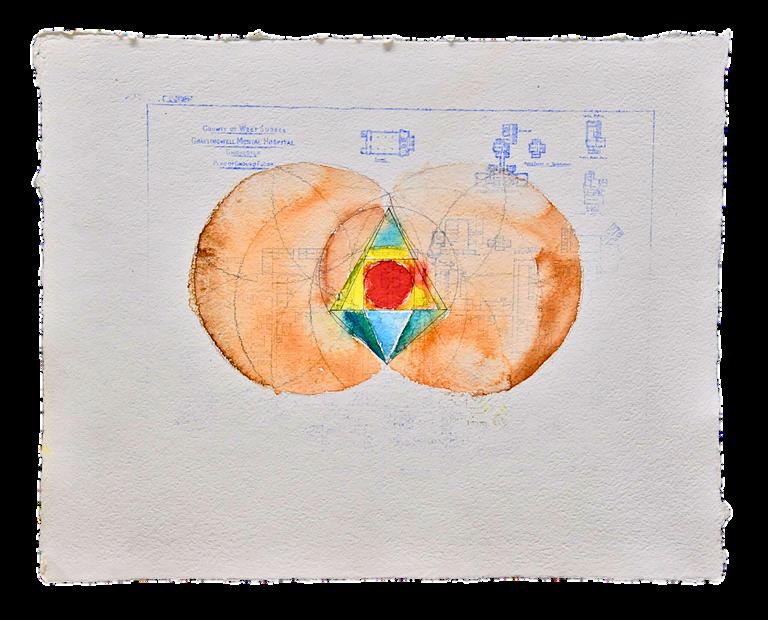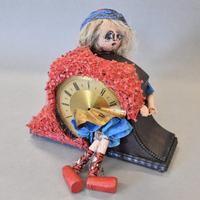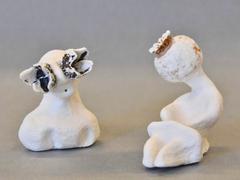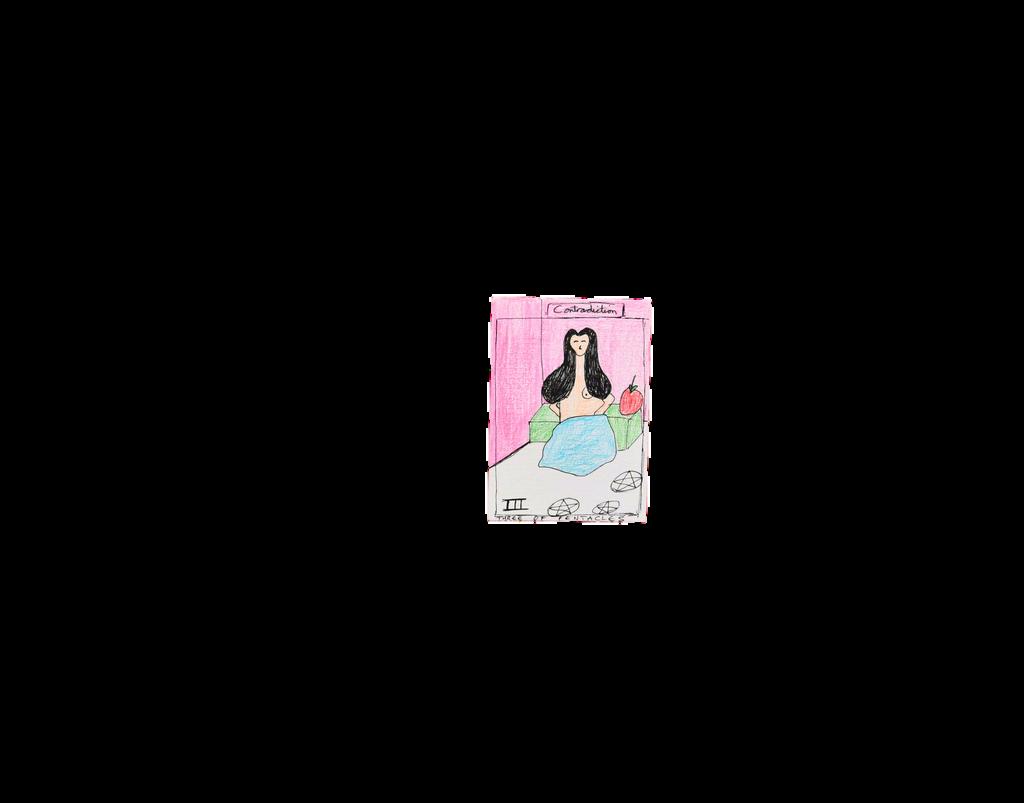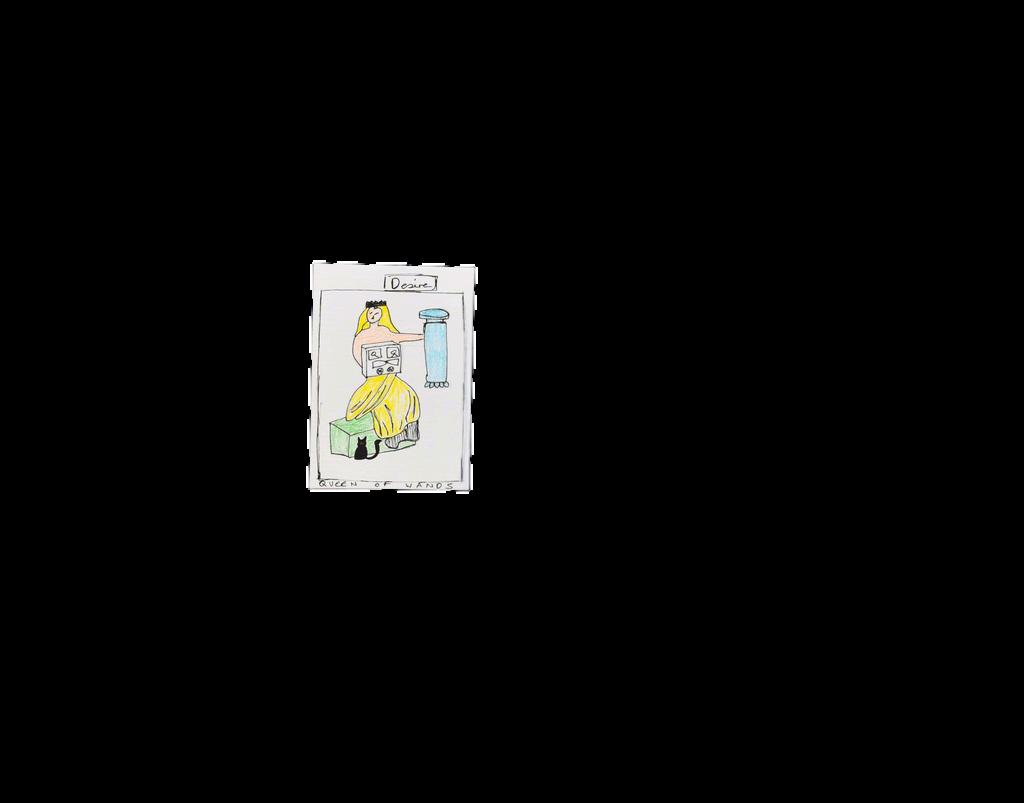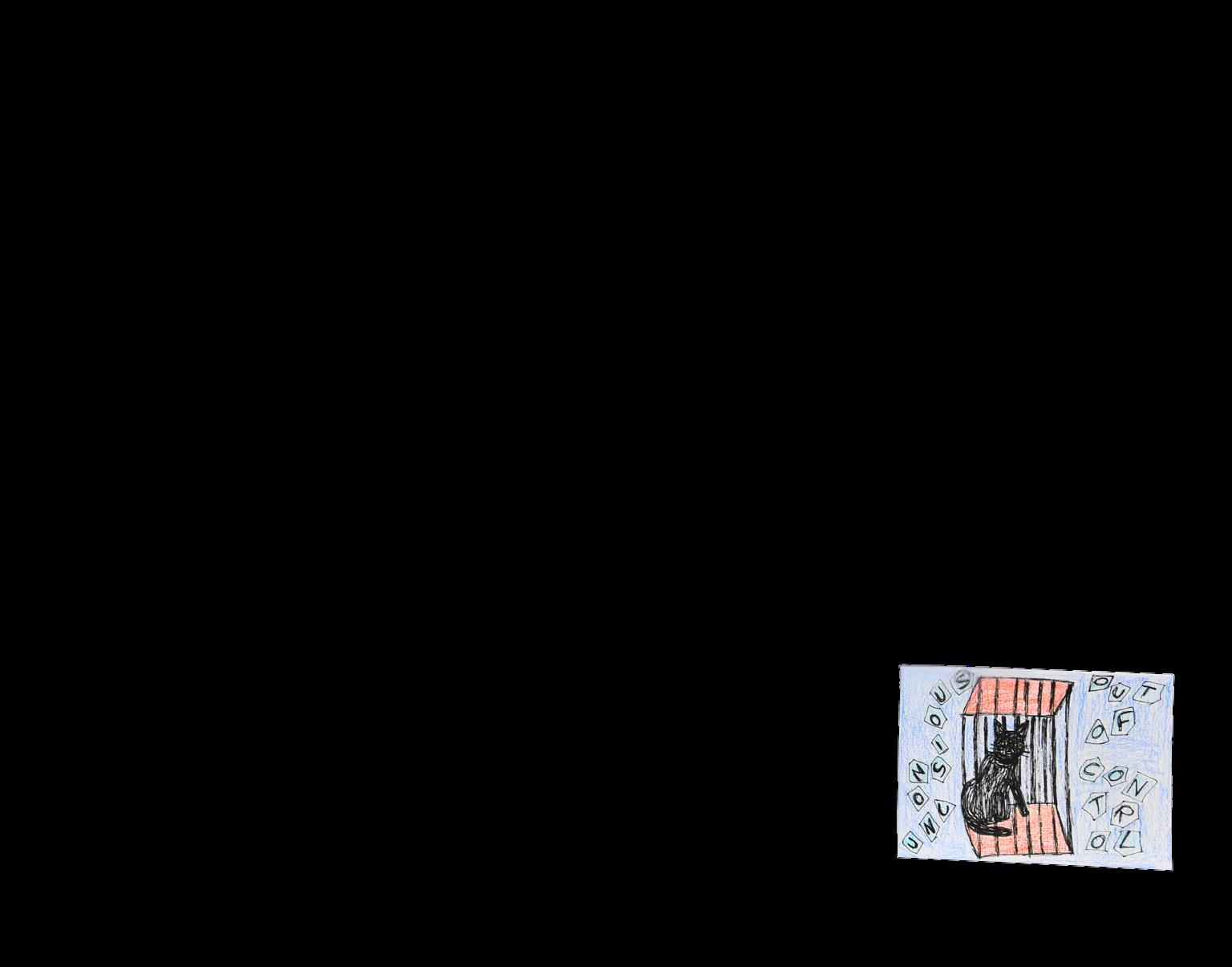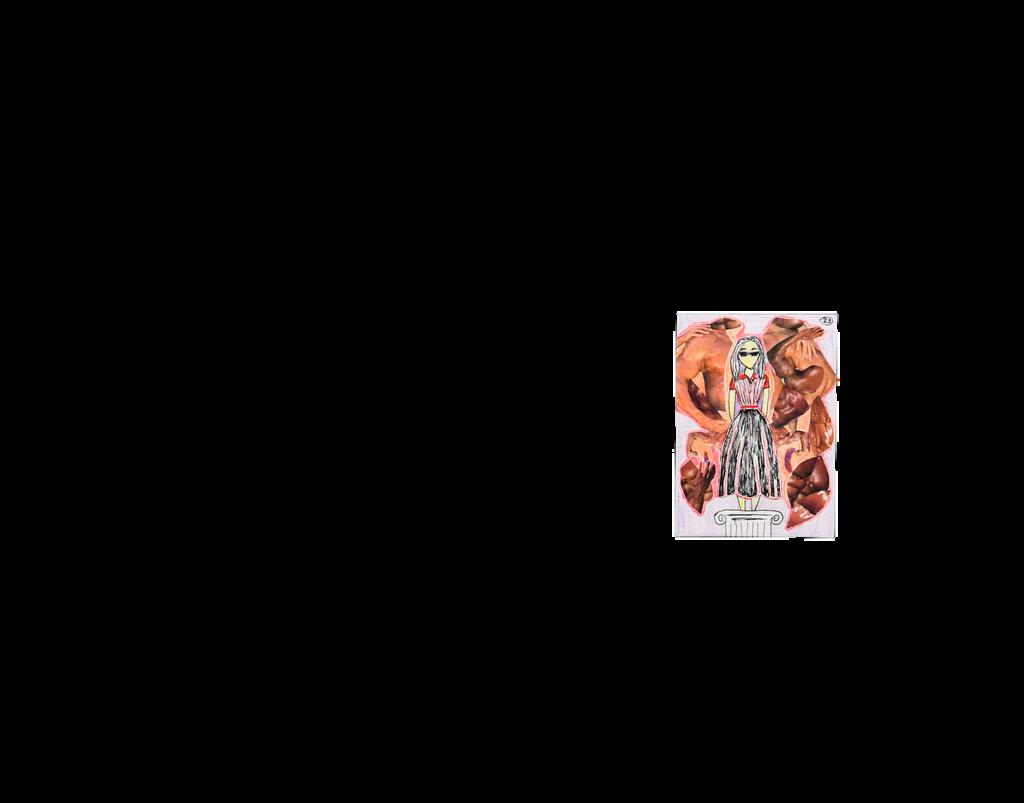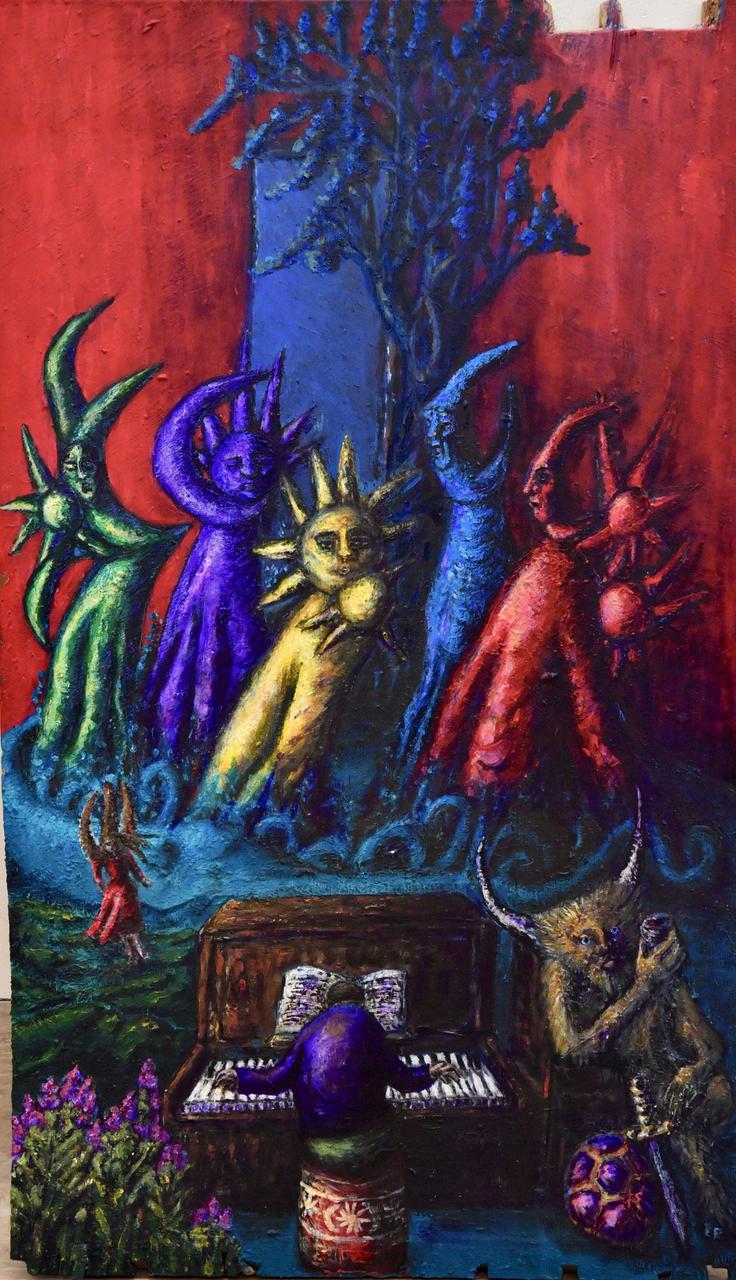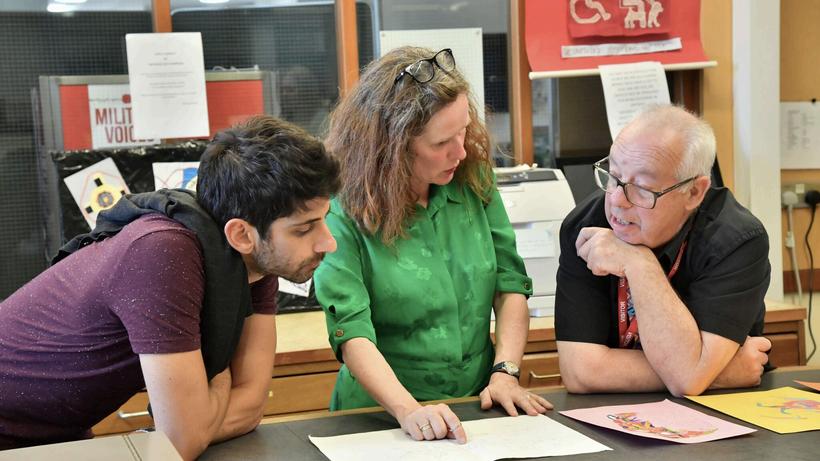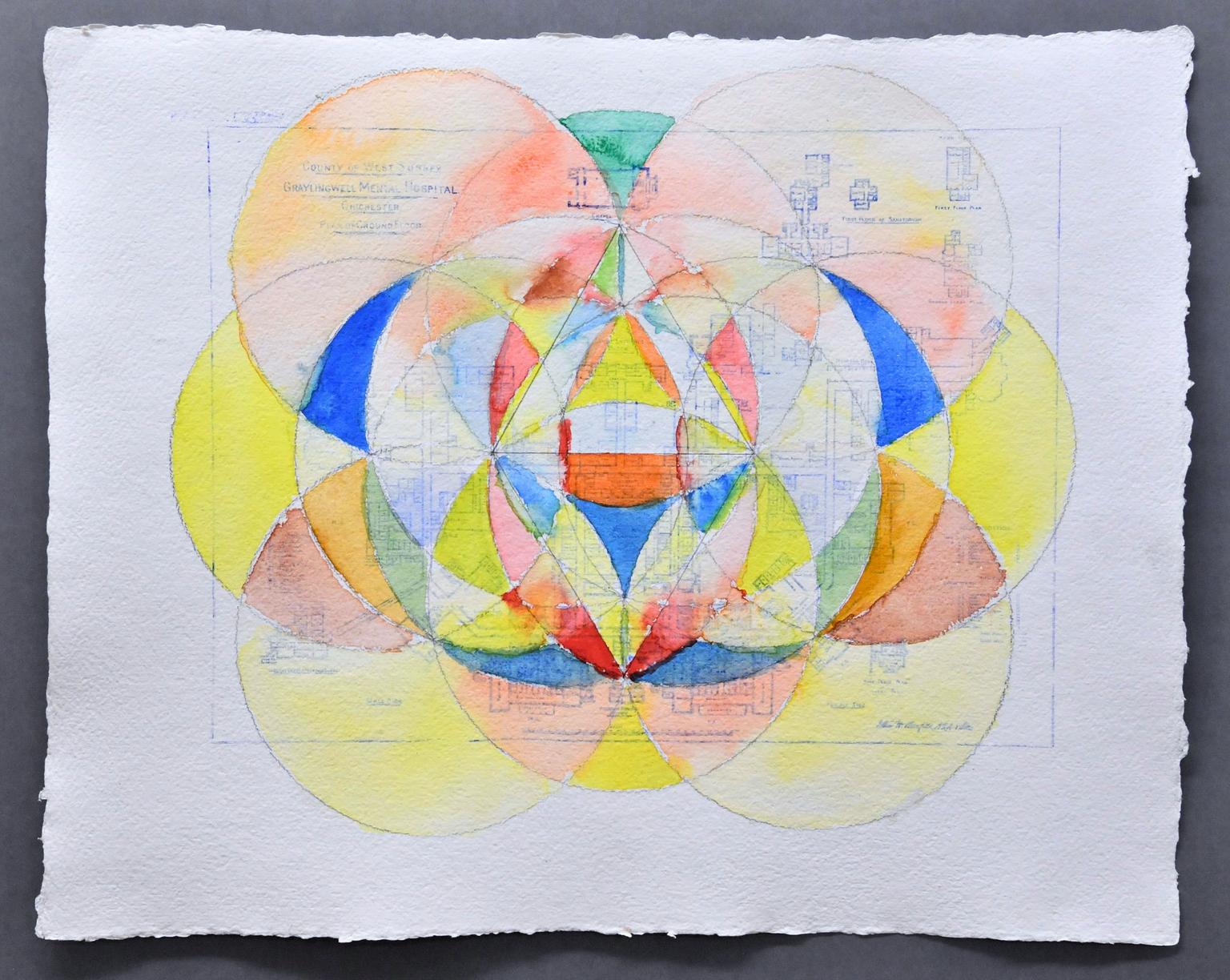
T H E V A W D R E Y A R C H I V E



JENNIFER MILARSKISTERMSEK
T H E V A W D R E Y A R C H I V E
The Vawdrey Archive, now cared for by West Sussex Record Office, comprises approximately 194 works produced by patients in art therapy sessions run by Dr Brian Vawdrey between 1951 and 1971.
Taking place between 2018 and 2019, the Vawdrey Archive Project brought together seven Outside In artists with this unique collection to explore issues like copyright, consent, interpretation and cataloguing that surround such collections.
The project aimed to return some of the authority to those who were compelled to live in these settings and highlights the voices and perspectives of those that have their own lived experience of mental health issues.
As well as consulting on issues such as copyright and consent, the Outside In artists who participated in the Vawdrey Archive Project were invited to creatively respond to the collection.

This guide showcases these responses, highlighting the journeys travelled by each participating artist and the impact the collection had on them and their creative practice.
Due to copyright restrictions, we are unable to share any works from the Vawdrey Archive in this guide.
For more information on the Archive, contact West Sussex Record Office: www.wsro.org.uk



A B O U T
O U T S I D E I N
Outside In is an award-winning national arts charity working towards creating a fairer and more inclusive art world.
The charity supports artists who encounter significant barriers to the art world due to health, disability, social circumstance, or isolation.
Outside In provides a digital platform for artists to show their work, and three programmes of activity: artist development, exhibitions, and training.
The aim is to change the art world by supporting artists, creating opportunities, and influencing arts organisations.

Outside In exhibition ‘Under A Blue Sky’ ambassador room, Phoenix Gallery, 2022, photo: Phoebe Wingrove
For more information, visit: outsidein.org.uk
A R T I S T R E S P O N S E S

GAIL HOWARD
NATASHA HARRISON
“To show my appreciation for the patient artists and their work, I stitched my own responses. I wanted their art works to be viewed as valuable alongside their own individual lives and I took the stance that these people were members of society who just were finding things hard at a point in their lives so they needed supporting.”



